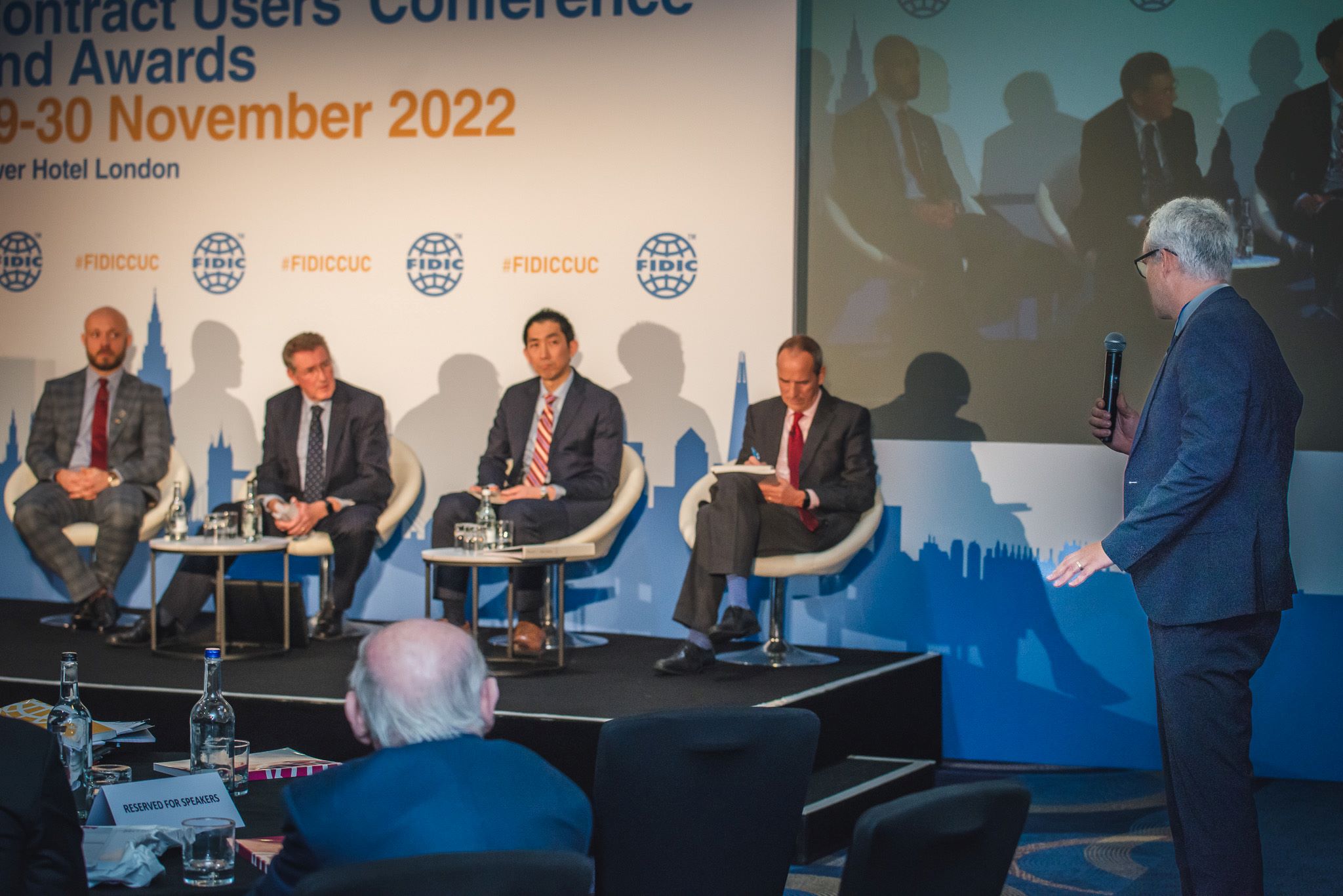The global construction contracts community gathered in London this week for the Official FIDIC International Contract Users’ Conference.
The conference, which was returning as an in-person event for the first time in two years on 29-30 November 2022, saw more than 200 legal and contractual experts hearing about essential updates on FIDIC’s contract suite as well as discussing the latest developments in the contracts arena, highlighting key and emerging issues.
In a keynote address to open the conference, Keating Chambers Kings Counsel and director of the Centre of Construction Law and Dispute Resolution at King’s College, London, John Uff said that these were challenging times for the construction and infrastructure sector, but there were reasons for optimism.
“We have global political and economic uncertainty - some of which is being driven by the ongoing war in Ukraine – and also a situation where many countries around the world rightly see infrastructure investment as key to revitalising and growing their economies. So that places a pressure and a responsibility on our sector and the people who make projects happen and succeed in their aims,” said Uff.
Uff highlighted the key role of infrastructure professionals in delivering the solutions the world needs but said that skill would be needed to deliver them. “There are many competing priorities and challenges and industry practitioners and professionals will need to find the right way to balance them,” he said.
Uff also highlighted what he saw as another key challenge for the industry, namely capacity building and training. “I of course have a particular interest in this area, as I chair the FIDIC Certification Board which has responsibility for creating and managing qualifying courses with the objective of establishing a truly worldwide pool of expertise in all aspects of international construction projects,” he said. “We cannot deliver the infrastructure projects the world needs unless we have the skilled people to do the work and this is an important message that our sector needs to continue to stress at every opportunity,” Uff told those assembled in London.
Elsewhere at the conference, industry leaders outlined some of the real-world consequences of dealing with challenges like continuing to work in Ukraine, navigating post-pandemic financing and grappling with rising global inflation.
Polish CEO Adam Bialachowski set out how companies were trying to maintain their activities in a warzone, JICA director Keisuke Fukui warned that the pandemic had limited government financing and Corbett & Co’s Edward Corbett noted that government decisions were not clear-cut for industry.
Speakers at the conference also highlighted some of the legal limitations and constraints as the infrastructure industry continues to manage economic turmoil on a global scale. Viliam Koprda, head of contracts management at PORR Group, said that the pandemic had created huge challenges for maintaining project activity and managing resulting risks. He also pointed out that even before this was fully resolved, the industry was hit by fast-rising materials costs as inflation escalated around the world and war in Ukraine spiked energy prices.
Ellis Baker, partner at White & Case, warned attendees that many jurisdictions like the UK do not recognise ‘Force Majeure’ and as result companies should not rely on that as a way of mitigating their risks. Instead, he said the matter can only be determined on the basis of contractual provisions because tough economic circumstances would rarely be sufficient cause for courts to nullify contractual obligations.
Vincent Leloup, chair of the FIDIC contracts committee, agreed that contractual provisions were more reliable than Force Majeure. “Contractual clauses covering price escalation can mitigate project inflation risks well, but these are dependent on cost formulas, so anything not covered by such a formula remains a contractor risk and this can still be a significant cost challenge that must be managed,” he said.
See below for further news reports from the two-day conference on FIDIC’s Infrastructure Global platform.
Engineers key to delivering infrastructure the world needs, says construction law expert.
Legal limitations as infrastructure industry manages turmoil.
Ukraine, pandemic and rising inflation pose practical impacts for construction.
FIDIC unveils construction contract reprints and launches new contracts guide.
“Business as usual approach will get us nowhere on net zero”.
“We can all learn from managing in a perma-crisis,” says Riskwell founder.
Contracts best practice highlighted as winners of 2022 FIDIC Contract Users’ Awards unveiled.
Fusion is crucial for a low carbon future for humankind but delivering it remains complex.
Megaprojects under the microscope at London contracts conference.
World Bank underpins social and environmental procurement with strong exclusion policy.
New EBRD exclusion rules prove timely for Ukraine invasion.
IADB looks to address dispute board absence in its construction contracts.







